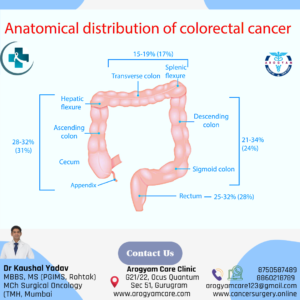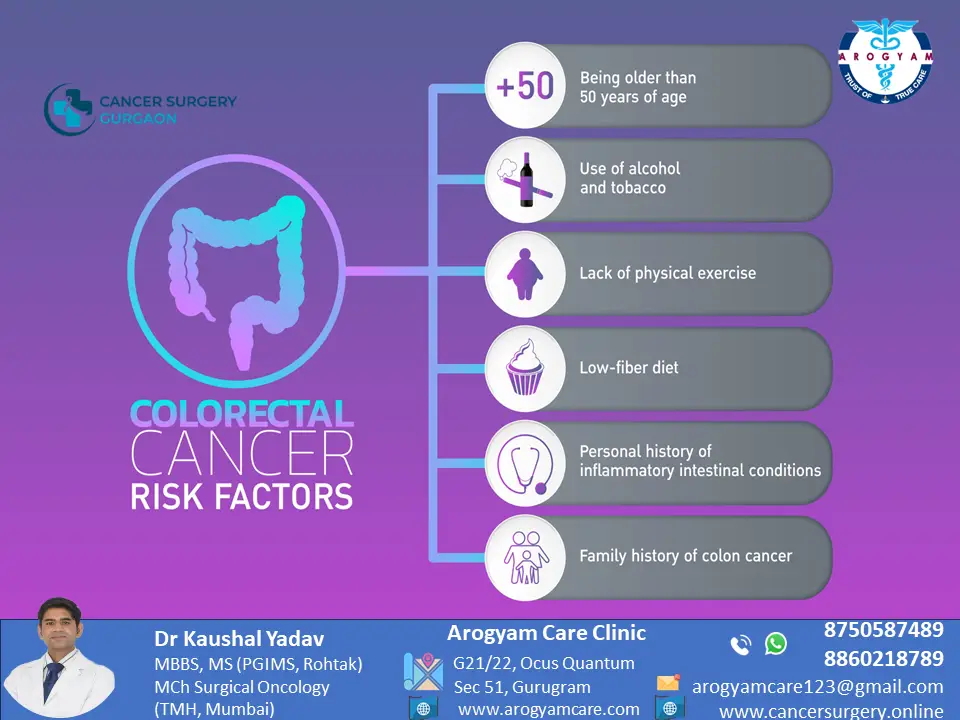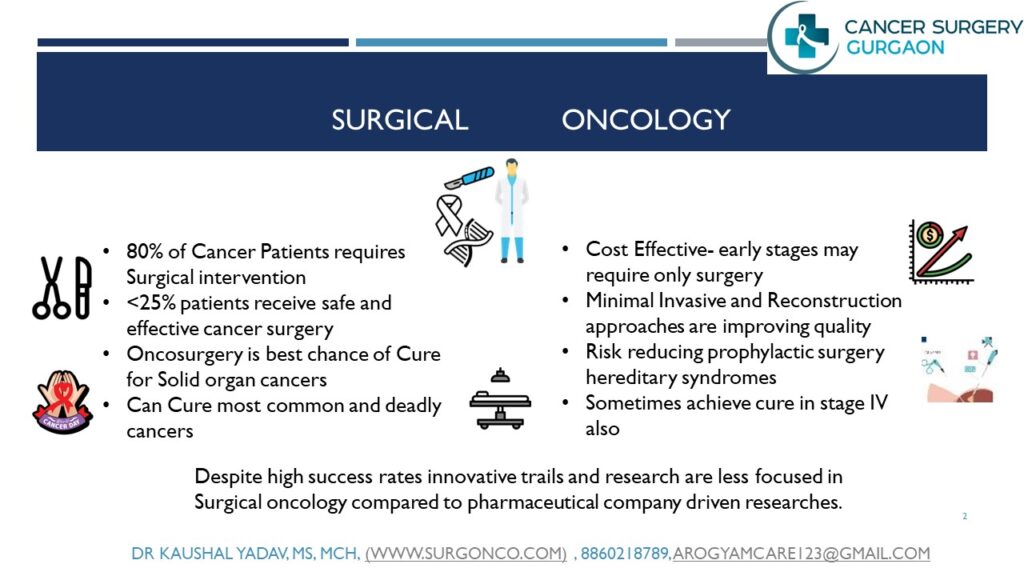The Problem: of rising incidence of colon and rectum cancer
 The incidence of digestive cancers, including those affecting the esophagus, colon and rectum has seen a dramatic increase globally, particularly among people under 50 years old. These cancer is increasing day by day. This trend began around 1990 and has continued to rise with each successive generation. The problems of rising colon cancer and rectum cancer as observed by Oncologist in India includes:
The incidence of digestive cancers, including those affecting the esophagus, colon and rectum has seen a dramatic increase globally, particularly among people under 50 years old. These cancer is increasing day by day. This trend began around 1990 and has continued to rise with each successive generation. The problems of rising colon cancer and rectum cancer as observed by Oncologist in India includes:
- Colorectal cancer is third most common cancer in world.
- Colorectal cancer is second most common cause of cancer related mortality in the world.
- 20% rise in incidence of digestive system cancers each year.
- In India colorectum cancer is sixth most common cancer and seventh most common cause of cancer related mortality.
- In Indian males it is fourth most common and in Indian females it is fifth most common cancer.
Risk factors for Colorectal cancer: Why cancer is increasing day by day
- Birth Cohort Effect: Researchers have observed a phenomenon called the birth cohort effect. It indicates that each successive group of people born later (e.g., a decade later) has a higher risk of developing cancer later in life due to risk factors they were exposed to at a young age. For instance, individuals born in 1960 experienced a higher cancer risk before turning 50 than those born in 1950, and this risk is predicted to continue climbing in subsequent generations1.
- Altered Exposome: The early life exposome, which encompasses an individual’s diet, lifestyle, weight, environmental exposures, and microbiome, has significantly changed over the last few decades. Factors like the Western diet, lifestyle changes, and other environmental influences may contribute to the rise in early onset cancer1.
- Alcohol Consumption: Higher alcohol intake has been linked to certain cancers. To reduce the risk of alcohol-related harms, the Guidelines recommend that adults of legal drinking age can choose not to drink, or to drink in moderation by limiting intake to 2 drinks or less in a day for men or 1 drink or less in a day for women, on days when alcohol is consumed. The Guidelines also do not recommend that individuals who do not drink alcohol start drinking for any reason and that if adults of legal drinking age choose to drink alcoholic beverages, drinking less is better for health than drinking more. By following the Dietary Guidelines, you can reduce the risk of harm to yourself or others. American cancer research society and many bodies advise to avoid alcohol completely.
- Fast Food culture: a diet consisting of highly processes food like pizza, burger etc and along with high sugar beverages is a commonly prevalent health hazard in today’s corporate culture.
- High Fat, low fiber diet, processed food: consumption of high fat and low fiber processed food is a known risk factor for colorectal cancer.
“a properly cooked whole grain paratha is healthier than a pizza”
“do not run behind a particular food but eat a balanced healthy diet”
These junk foods and processed foods are comfortable and ready to eat, have long life. These industrially manufactured foods have additives like modified starch, hydrogenated oils. They are served in fast food restaurants and also sold via supermarkets. Examples are soft drinks, sweet or packaged snacks, processed meat, pre-prepared frozen or shelf-stable dishes, and more. But this comfort comes at a cost. They are reason behind many diseases like cancer, diabetes, heart diseases and obesity. Processed meat: Eating every 100g of red meat increases the risk of colorectal cancer up to 17%.
Red meat: contain n nitroso chemicals which are known carcinogens. Eating 50g of red meat increases the risk of colorectal cancer by 20%.
Smoking: Tobacco use remains a significant risk factor.
Obesity: Body mass index above 30 is obesity. Overweight and obesity are associated with 15-20% of cancer related deaths. A healthy practice should be adopted to maintain ideal body weight.
“ a healthy body doesn’t mean six packs but strong enough to do daily activities with full energy and happy mind”
Microbiome Changes: The food we eat affects the microorganisms in our gut, potentially influencing cancer risk1.
Prevention: What can we do?
- Healthy balanced diet:
- Daily calories 2000-3000. 45% – 55% from carbohydrates, 25-30% from proteins, 15-30% from fat.
- Protein requirement 1g/Kg/day.
- 400g of fresh/ vegetables per day.
- Encourage intake of Fibers and plant based diet.
- Daily Physical activity:
- One minute of moderate-intensity physical activity provides seven minutes of additional life.
- Regular exercise reduces risk of cancer by 10-20%
- 150 minutes per week of moderate-intensity physical 75 minutes of vigorous exercise per week or 30min of exercise daily for a at least 5day in a week.
- Avoid Alcohol/ tobacco
- Avoid Junk food and processed food.
- Avoid red meat and processed meat
- Colorectal cancer screening: as suggested by colorectal surgeon, gastroenterologist and oncologist in Gurgaon according to guidelines:
- Stool Tests: Fecal Immunohistochemical Test (FIT) & Fecal Occult Blood test (FOBT) – Stool based test once a year can decrease colorectal cancer morality by 30%.
- Colonoscopy: Colonoscopy is an endoscopic examination to check inside of large intestine. Colonoscopy once in every 10 years decrease colorectal cancer related mortality by 50%.
- CT colonography (virtual colonoscopy) every 5 years in patients not opting colonoscopy as alternative method.
Rising incidence of colorectal cancer is a grave concern. The statistics presented here underscore the pressing need for increased awareness, early detection, and improved access to healthcare services. It is imperative that we collectively work towards reducing the burden of cancer. Early detection can save lives, and spreading awareness is the first step towards achieving this goal.




